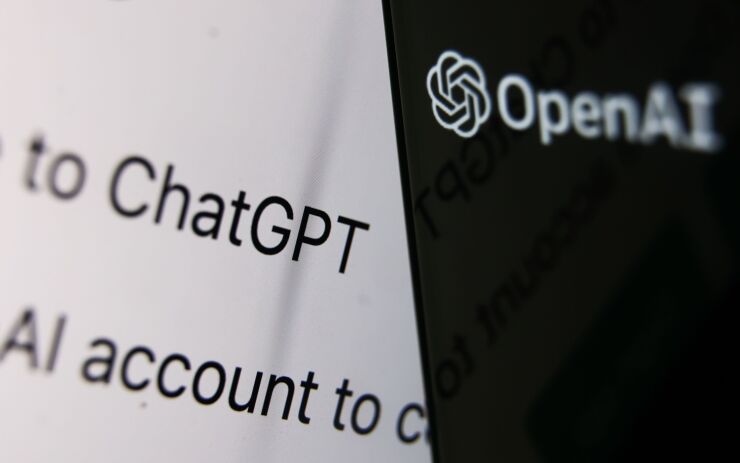I recently spent the best part of a weekend playing with
That claim will be laughed off by the vast majority of financial services leaders. Unfortunately, many probably aren't aware of what ChatGPT is — most financial executives I've spoken to in recent weeks haven't heard of it. Those that have heard of it view it as little more than an upgraded chatbot.

In fact, the technology behind ChatGPT poses a direct threat to financial providers' core strategy. Most financial firms think they'll be able to keep earning high margins by selling trust and advisory services, especially to high-net-worth individuals. They've doubled down even as robo advisor firms have taken
Still, traditional financial services firms remain confident that clients will always want to talk to a human before deciding on something like a college savings plan. Is that really true, though? I challenge them to retain that confidence after spending a day exploring ChatGPT and considering how it could be trained on financial models to come up with excellent individualized advice.
Interacting with ChatGPT is like hanging out with the best-informed, brainiest acquaintance you've ever had — one that responds at lightning speed and never gets tired or bored. It's already being used to
Of course, ChatGPT isn't perfect. Some responses have a canned, rote feel; others are inaccurate. But it's improving. In time, this powerful new AI iteration will give nuanced, accurate advice on life insurance, tuition loans and other personal finance and business topics, democratizing access to financial services in a very conversational, personal way.
The financial industry has long recognized the need to differentiate itself through human service, rallying behind the cry "It's all about the people." In reality, though, very few firms have genuinely invested in ensuring their people have the skills needed to rise above the coming AI wave.
Did you ever feel like you were talking to a robot when calling your bank's or insurance agent's customer service? The average barista at Starbucks does a better job at making you feel valued because they're not just reading from a script. Guess what? Those call center jobs are first in line to be replaced by ChatGPT-powered robots.
The good news is that ChatGPT won't replace the need for all human financial advice, at least not in the next 10 years. What it'll do, and soon, is turn much of the current advice into table stakes, putting a premium on human counsel that is genuinely creative, original and empathetic. Just like past technology, it won't destroy human work; it will simply push humans up the chain into higher functions.
Because, for all its startling capabilities, ChatGPT doesn't actually know anything. It's essentially backward looking, scouring large data sets for existing patterns. It gives conventional answers. The real creativity has come from users' questions, prompts and use cases thrown at it since Nov. 30 when it was made public.
For financial services, people will always want nuanced, personalized counsel. They may opt for an insurance plan based on advice from a robot, but AI will be lacking if something goes wrong with that plan or in their lives. Bots can suggest investment portfolios based on financial goals, but what about ones aligned with the things users may not even know how to articulate, like their tolerances for geopolitical risk?
The fact that ChatGPT isn't set up for this shouldn't be a reason for financial industry executives to relax. Leaders take the challenge posed by this technology extremely seriously, working to understand how they can both harness it and ensure that it doesn't eat their business.
I don't just mean front-end, client-facing operations. There are huge implications for back-end tasks like underwriting loans, settlements, clearances or record maintenance.
Right now, every leader in the industry should spend a whole day on ChatGPT. They should stop giving knee-jerk arguments against it being important. They should start running experiments with it in their teams, understanding what it can do in the front end and back end for the future of their business. And they should start considering how to invest in training their people to provide the kind of value to customers that machines can't replicate.
If they don't, they risk making the same mistake that conventional carmakers made with electric vehicle technology a decade ago. Most were dismissive about the threat, at least until Tesla's market cap overtook Ford's five years ago.
AI has the potential to break the financial services industry as we know it. It also has the potential to save it — if leaders take home the right lessons and get going now.






